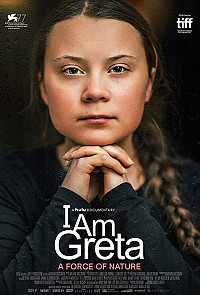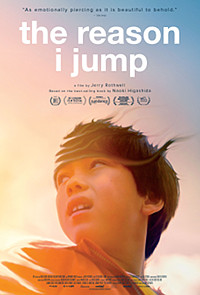| SHADOWS ON THE WALL | REVIEWS | NEWS | FESTIVAL | AWARDS | Q&A | ABOUT | TALKBACK | |||||||||||||||||||||||||||||
 Shadows off the beaten path Shadows off the beaten pathIndies, foreign, docs and shorts...
On this page:
I AM GRETA |
I AM SAMUEL |
THE REASON I JUMP
| |||||||||||||||||||||||||||||
| See also: SHADOWS FILM FESTIVAL | Last update 11.Oct.20 | |||||||||||||||||||||||||||||
|
I Am Greta Review by Rich Cline | 
VENICE FILM FEST TORONTO FILM FEST Now streaming...
| 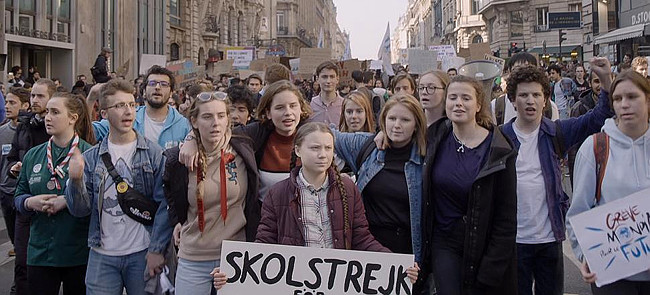 It's been barely a year since 16-year-old Greta Thunberg hit global headlines sailing across the Atlantic to address the UN's climate change summit. Now one of the most famous women on earth, she stands boldly opposite adults who say one thing (the planet is precious) and do another (exploit it). Filmmaker Nathan Grossman takes a fly-on-the-wall approach, observing Greta's daily experiences as she quietly provokes the world to action. The film opens with a montage of voices claiming that global warming is a hoax, accompanied by footage that proves otherwise, as extreme weather gets exponentially worse each year, accompanied by accelerated extinctions, sea level rises and melting ice shelfs. It's telling that this has become a war between children worried about their future and adults who are complicit with corporations striving to extract as much money as possible regardless of the science (believing the lies is complicity). And it's horrifying to see how the media so viciously attacks Greta. By age 15, Greta was striking outside Swedish parliament, drawing a crowd of supporters and media attention with her lucid explanations. Protective dad Svante explains that Greta's prodigious memory skills allow her to understand this issue better than most politicians. While critics dismiss her as mentally ill, she knows that her Asperger's and obsessive-compulsive tendencies give her a laser focus. This means that she becomes so involved that she can forget to eat. Her dad makes sure she does, and also tries to help her stop worrying about unnecessary details. Grossman assembles this without preaching, merely allowing cameras to capture the composed, articulate, impassioned, bracingly intelligent Greta as she finds herself at the forefront of an enormous movement. And her observations show astonishing wisdom. As she travels from event to event, she continually faces politicians who love the spotlight but do nothing. Then she goes outside to a street packed with young activists frustrated at government inaction. The cameras also capture her in moments of doubt, overwhelmed by the task at hand. This young woman's quiet tenacity is hugely inspiring, as she begins to understand her role in the bigger picture. "Humanity sees nature as a bottomless bag of candy," Greta says. "But once the climate issue has caught your attention, you can't ignore it ... your house is on fire." So it's fascinating to watch her family's home movies reveal their shift from high-consumption to heightened awareness of their environmental impact. But then, every child understands that just saying that you're trying isn't enough.
|
| I Am Samuel Review by Rich Cline | 
| 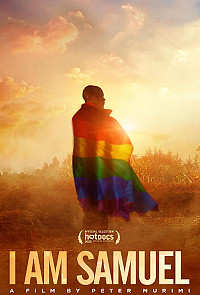 dir Pete Murimi scr Pete Murimi, Ricardo Acosta prd Toni Kamau, Pete Murimi with Samuel, Alex, Redon, Rebecca, Sippy, Tyrel, Justo, Simon, Gilbert release US Jun.20 hrwff, UK Oct.20 lff 20/Kenya 1h09  Now streaming...
| 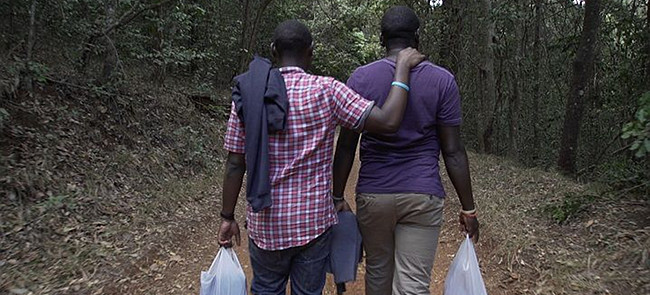 Filmed over the course of five years, this is an astonishingly brave documentary about a gay man's life in Nairobi. Homosexuality isn't illegal in Kenya, but "unnatural" sex is a felony. And vicious public attitudes are even more dangerous. But Samuel knows that it's important for him to tell his story, and filmmaker Pete Murimi has made a remarkably intimate film that eloquently pleads for compassion and understanding. The film opens as the thoughtful, likeable 26-year-old Sam introduces his smiley boyfriend Alex as the love of his life. "We saw ourselves in each other," he says. "We belong together." Their lively friends gather to share experiences, noting that most of their parents know about them but refuse to accept the truth. Most people in this deeply religious nation hold devout Christian beliefs, including these gay men who celebrate birthdays and mark relationships together. They've created a supportive new family that offers help when they endure violent homophobic assaults, sometimes from their relatives. Growing up on a rural farm, Sam knew he was different at 14, but he gave into pressure to have a girlfriend. And he loves being an involved father to his young daughter. Later, he moved to Nairobi to find work in construction and as a sports coach. But each time he returns home for a visit, his pastor father Redon and mother Rebecca express hope that he finds a wife who can help harvest their crops. They approve of Alex as a "friend", but learning that he's more than that leads them to disown their son. The camerawork is beautiful, capturing picturesque settings and focussing in on these fascinating faces as they engage in thoughtful, offhanded conversations and attend various religious services. This is in sharp contrast to horrific phone footage of Sam's friend being brutally attacked by a braying crowd who think he's gay. This peril is everywhere. Indeed, Alex's parents know that he's gay, and he's been warned that his father might try to "teach him a lesson". The film's easy, everyday approach is refreshing, offering moments that are funny and moving. These young men just want to stop hiding and be themselves. They're sad that their families have rejected them and frustrated that anyone thinks they could just stop being gay if they tried. And it's fascinating to watch the changing relationship between Sam and his parents, especially as Sam redefines his connection to his home. It's also beautiful to see them eventually find a way to live, as the film says, in truth and love.
|
| The Reason I Jump Review by Rich Cline |  MUST
MUST  SEE SEE
SUNDANCE FILM FEST  Now streaming...
| 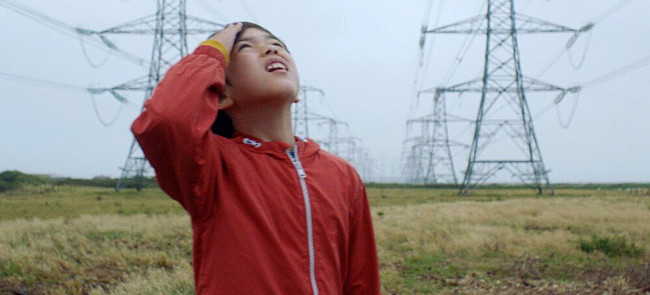 This documentary is based on the book by Japanese 13-year-old Naoki Higashida, describing how it feels to be autistic and unable to speak. Filmmaker Jerry Rothwell illustrates this by travelling around the world to visit parents and children who are dealing with autism in a proactive way. The film is beautifully shot and edited, using colours, shapes and textures to offer the viewer a new sense of perspective. Naoki writes that he has never been able to understand why people think he's so different. He feels normal, even though he's never been able to carry on a conversation. He asks us to imagine how it would feel if we couldn't say what we wanted. And he describes how he looks at an object details first, rather than as a whole like other people, and how he has to sift through his memories to interpret each thing he sees. He also struggles to distinguish between what he sees now and what he experienced years ago. The film is bracingly assembled as a sensory experience. In India, Aarti speaks about her daughter Amrit being frustrated at her inability to express herself verbally, then discovering artwork. In England, Joss is a cheerful teen who sees and hears every detail around him, speaking in patterns connected to random memories. In Virginia, speech therapist Elizabeth puts language into a physical space, allowing inseparable friends Ben and Emma to spell out what they want to say. In Sierra Leone, where autism was seen as demon possession, Roland says his daughter Jestina taught him how to be a father. These stories are presented in a mix of intimate fly-on-the-wall footage and home movies along with commentary from the children's parents, with added narration using Naoki's words. The emotions depicted are powerful and sometimes rather unnerving. So discovering a way for these kids to express words is revolutionary, giving voice to frustrations about the lack of opportunity and freedom. As Ben says, "I think we can change the conversation about autism by being part of the conversation." Most importantly, this film vividly demonstrates that autistic people have a full range of intelligence, creativity and emotions. To them, sensory elements may be difficult to interpret or categorise, and various things might evoke pleasure and pain. But this all seems natural to these kids who so badly want to connect with other people. Seen through their eyes, it turns out that we're the ones who are limited.
| 
See also: SHADOWS FILM FESTIVAL © 2020 by Rich Cline, Shadows
on the Wall
HOME | REVIEWS | NEWS | FESTIVAL | AWARDS
| Q&A | ABOUT | TALKBACK | | |||||||||||||||||||
